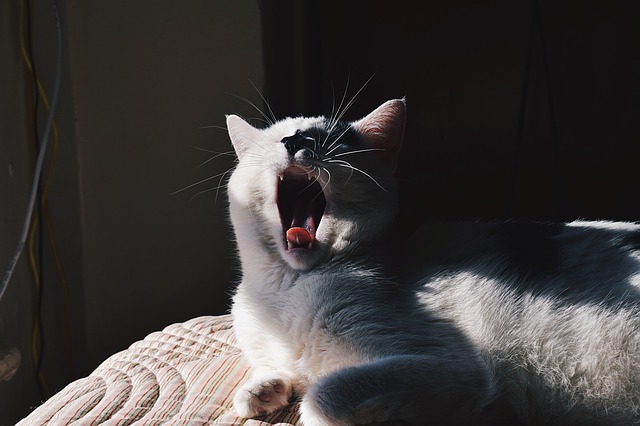There’s no sugar-coating the fact that cranky cats aren’t exactly fun to be around. Signs you have a real-life grumpy cat on your hands include everything from total avoidance to point-blank aggression. Some cats lash out with seemingly random bouts of moodiness, and others seem like they need permanent attitude adjustments. Whatever the case, there’s always a reason behind a cat’s less-than-amiable personality. Like people, their moods are affected by what goes on around them. Here are a few reasons why your cat might be cranky.
#1 – They’re in Pain
A person’s emotions are closely linked to their physical well-being, and the same goes for cats. If your cat is in pain or feels sick, the stress of dealing with that discomfort can cause sudden changes in personality. If your cat’s crankiness includes an intolerance to being touched, hiding, and a lack of appetite, the signs point toward a medical problem. Visit your vet to either confirm or rule out the possibility.
#2 – They Feel Neglected
Cats may not demand attention in the same way dogs do, but they’re still social animals who thrive in a family setting. They’re capable of taking care of themselves in terms of foraging for food and general survival, but their overall happiness and well-being depends on regular stimulation. Offering your cat one-on-one attention on a more regular basis (while still respecting their boundaries) may draw them out of their bad mood.
#3 – They Don’t Feel at Home
If you want your pet to be perfectly comfortable and content, your house needs to feel like their house. It should be full of familiar smells and plenty of places where they can feel perfectly relaxed. When they don’t feel safe, their feeling of unease will translate into cranky behavior. Feeling at home is usually something that improves over time, but if it doesn’t, there are things you can do. Try setting up a “safe space” that belongs solely to the cat. No dogs, kids, or others allowed.
#4 – They’re Being Physically or Intellectually Suppressed
Cats are smart, athletic creatures who are capable of impressive feats. They leap, run, hunt, and stalk, and they use their brains to solve problems and learn tricks. The cushy life of the average house cat is great for their comfort and safety, but it often robs them of the opportunity to meet their full potential. A cat that feels under-stimulated may channel that energy in the wrong direction. In other words, bored cats are cranky cats. Try introducing new interactive toys and engaging in personal playtime. You could even teach your cat new tricks like how to use the toilet.
# 5 – They Don’t Approve of a Recent Lifestyle Change
If you’ve had your cat for more than a few months and a recent change in their personality or behavior has you worried, think back on possible life changes that could be affecting your feline’s mood. Once accustomed to a routine, cats become creatures of habit. A new pet, a new baby, a new litter box, or even a new piece of furniture in the living room could be the reason why your cat is suddenly unhappy. Time might eventually solve the problem, or you could use positive reinforcement techniques to help your kitty accept change.



